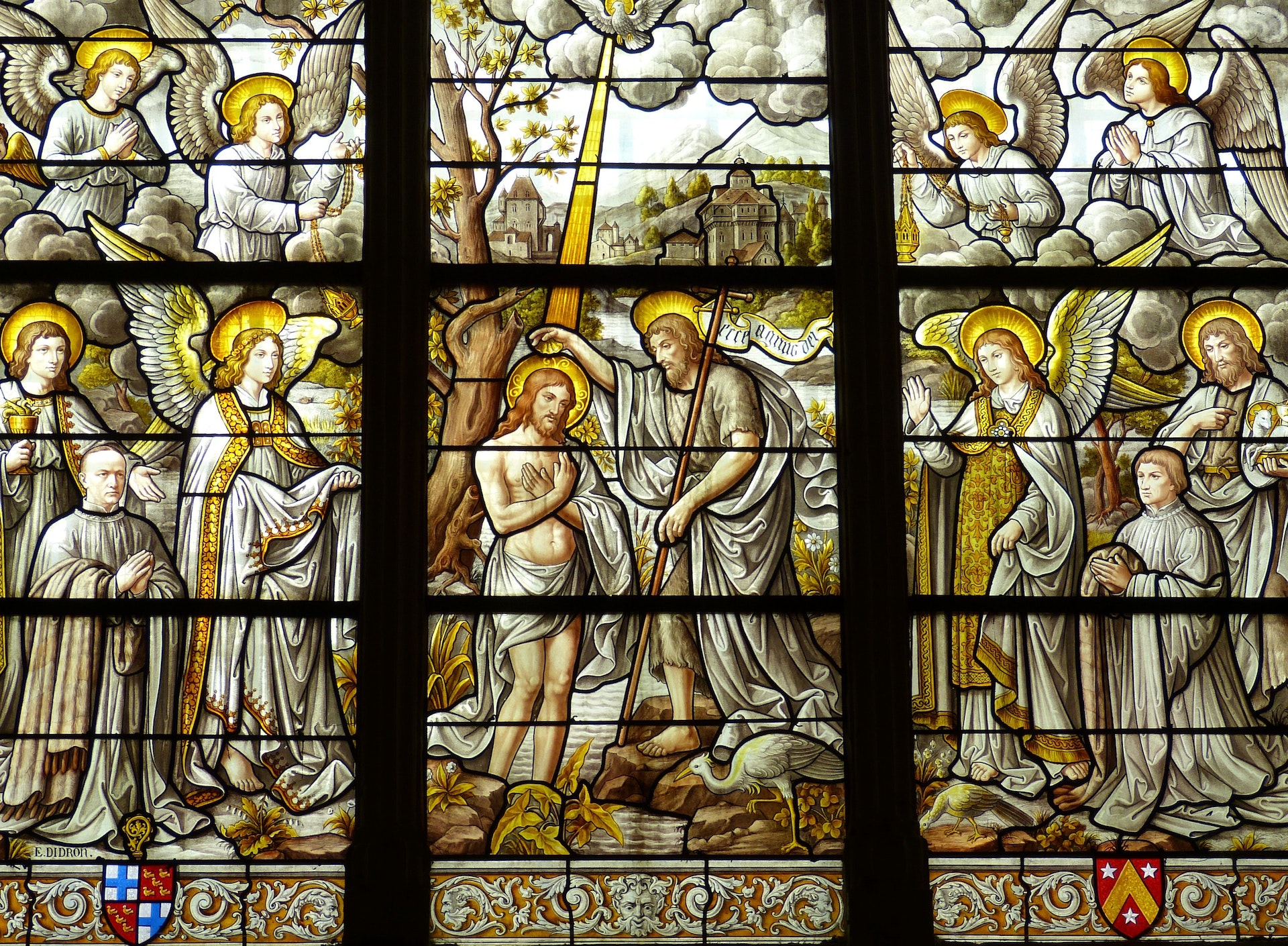Is the doctrine of the Trinity found in the Scriptures? The answer to this question is vital. If the Trinity is as important as Christians say it is, then it must be scriptural. In a previous article, I noted that the Trinity arises from the very text of Scripture, that it is unique to the Christian Faith and therefore vitally important for our lives and the life of the Church. There are a few groups that claim to be Christian, such as Jehovah’s Witnesses and Mormons, but they denounce the doctrine as unbiblical and heretical. They go on to say that the term “Trinity” is found nowhere in Scripture.[1] Thus, it becomes all the more important for Christians to be informed about the Scriptures and their teaching on the doctrine of the Trinity. Where then, in the Scriptures, do we go to locate the doctrine of the Trinity? Given that God has given us the Scriptures as His revelation, is there a way to identify if the Trinity is indeed found in them? Yes, there is a way to categorize Trinitarian Scriptures. There are three categories of Scriptural texts relating to the Trinity. But before venturing into the three categories of Trinitarian Scriptures some brief words are in order concerning the doctrines of divine simplicity and inseparable operations.
Divine Simplicity and Inseparable Operations
Divine simplicity is the doctrine that states that God is simple. By “simple,” theologians mean that God is not made up of parts; God is simply one. If God were not simple it would mean that God was complex, that is, made up of parts and is dependent upon something or someone outside of Himself to make Him what He is. The implications of this would be that such a God is not perfect or complete in Himself and therefore would not qualify as God. Moreover, if God is not simple than each person of the Trinity could be understood as a part in God. James Dolezal in his book, All That is in God: Evangelical Theology and the Challenge of Classical Christian Theism, put it like this, “Because God cannot depend on what is not God in order to be God, theologians traditionally insist that all that is in God is God.”[2] Hence, the Father, Son and Holy Spirit are the one God of reality.
This simple God is also Father, Son and Holy Spirit who simultaneously and from eternity exists in a relationship with one another. Adonis Vidu, in His recent book, The Same God Who Works All Things: Inseparable Operations in Trinitarian Theology, notes, “Classical Trinitarianism confesses that opera trinitatis ad extra sunt indivisa.” In other words, all of the external works (in the world) of the Trinity are indivisible. There are not three wills, but one will equally shared by the three persons of the Trinity. There are not three works, but one work carried out by the three persons of the Trinity. Given God’s oneness and his perichoretic nature (mutually indwelling), where one person acts the others likewise act and are present. It may the case that in a particular passage one person of the Trinity is specifically mentioned, but all three are involved. Thus, from this we can conclude that the operations of each person of the Trinity are not isolated but inseparable. Take for example salvation: God the Father elects some to salvation, the Son accomplishes the work of salvation and the Holy Spirit applies the work of salvation. Each person has a particular operation in the work of salvation, and because there is only one God and God is simple, it follows that the Father, Son, and Holy Spirit are the one true God whose operations are inseparable. In the following sections, we will see the logical outworking of these two doctrines in Scripture via the three categories of Trinitarian Scriptures.
The Three Categories of Trinitarian Scriptures
The Essential Oneness of God
Why begin with the essential oneness of God? Simply because the Scriptures reveal God’s oneness, that is, that God is one. That God is simple and not complex (meaning that God is not made up of parts). God is one in essence and that is how God chose to reveal Himself. There is no other God that exists. In the book of Deuteronomy, Moses declared to Israel, “Hear, O Israel: The Lord our God, the Lord is one” (Deut 6:4). Given that God delivered Israel from Egyptian captivity, the Israelites were therefore to worship the one and only true God.
The prophet Isaiah records God’s words concerning His essential oneness, “Before me no god was formed, nor shall there be any after me” (Isa 43:10).[3] God is in a category of His own. Additionally, and related to God’s oneness, is the notion of simplicity. God is simple, meaning that He is not composed of parts; He is one Being and is complete in Himself. This is important because when God revealed Himself, He ruled out polytheism and henotheism.[4]
The Full Deity of the Distinct Persons
The second category of Scripture reveals the full deity of the distinct persons of the Godhead (Father, Son, and Holy Spirit). In the Old Testament, God had revealed Himself as one. But in the New Testament, God decides to reveal, unveil if you will, the mystery progressively. This unveiling only took place because of the redemptive process.[5] God waited until the fullness of time to reveal His threeness (Eph 1:3 – 21; Gal 4:4 – 7). It would not have been beneficial to have done this in the Old Testament as this would have caused grave consternation given that the Israelites lived amongst the polytheistic nations and God revealed Himself as the one and only true God. In the following Scriptures we will see how each Person’s deity is demonstrated.
The Father
First, the Father’s deity is easy to identity because the Scriptures clearly point to it. The Apostle Paul wrote to the Ephesians, “Grace to you and peace from God our Father and the Lord Jesus Christ” (Eph 1:2; italics mine). It could not be any clearer; the Father is God. Additionally, anytime one sees the term God, in the New Testament, it is generally understood to refer to God the Father.
The Son
Concerning the Son’s deity we read, “In the beginning was the Word, and the Word was with God, and the Word was God…And the Word became flesh and dwelt among us (John 1:1, 14). This makes it clear that the Word was God, Yahweh, and that the Word took upon a human nature. In so doing, God demonstrates to us that the singular person (subject) who happens to be truly God and truly human is divine. Moreover, in Mark 2:5 – 12 we read that the Son forgives sins, but forgiving sins is a prerogative belonging to God alone. Hence, if God alone can forgive sins, and Jesus forgives sins, then Jesus is God.
The Holy Spirit
Now, how about the Holy Spirit? A situation arose when Ananias engaged in a deceptive act and Peter confronted Ananias by saying, “Ananias, why has Satan filled your heart to lie to the Holy Spirit…[y]ou have not lied to man but to God (Acts 5:3-4).” Consider Jesus’ warning against blaspheming the Holy Spirit. Jesus said, “People will be forgiven every sin and blasphemy, but the blasphemy against the Holy Spirit, it will not be forgiven him either in this age or in the one to come” (Matt 12 31 – 32). Note that blasphemy is an act committed against God. If the Holy Spirit were not God, then one could not commit blasphemy against the Holy Spirit. Wasn’t that the reason that Jesus was crucified, that He was understood to be God?
It is clear that Scripture tells us that the Holy Spirit is God. These three Scriptures concerning the Father, Son and Holy Spirit demonstrate the full deity of each Person of the Godhead.
The Simultaneous Distinction of the Three Persons
The third category of Scriptures shows the simultaneous distinction of the three Persons of the Godhead. The first passage of Scripture to be considered is known as the Great Commission. Jesus has just finished giving the disciples their marching orders when He said, “Go therefore and make disciples of all nations, baptizing them in the name of the Father and of the Son and of the Holy Spirit” (Matt 28:19). Here we see the three Persons of the Godhead sharing the singular name of God. The name of God is Yahweh, and here we see Jesus saying that the three Persons who equally share that name. Moreover, in Greek, the three persons are in the genitive which indicates that each Person possess the divine name.[6]
Jesus said to them again, “Peace be with you. As the Father has sent me, even so I am sending you.”[7] And when he had said this, he breathed on them and said to them, “Received the Holy Spirit” (John 20: 21 – 22).
The second passage displaying the simultaneous distinction in the Godhead comes from Ephesians 1: 1 – 14. Not only does this passage demonstrate the simultaneous distinction of the three persons of the Godhead, but it also reveals that God saves in a Trinitarian manner. We read, “Blessed be the God and Father of our Lord Jesus Christ… even as he chose us in him before the foundation of the world… he predestined us for adoption to himself as sons through Jesus Christ” (Eph 1:3 – 5). The Father elects and predestines to salvation via adoption as sons. “In him we have redemption through his blood, the forgiveness of our trespasses (Eph 1:7). The Son is sent and is the one who accomplishes our salvation. “[You] were sealed with the promised Holy Spirit, who is the guarantee of our inheritance until we acquire possession of it” (Eph 1: 13 – 14). The Holy Spirit is the one who seals and applies salvation to the elect.
Conclusion
Is the Trinity found in Scripture? From the few Scriptures referenced, we can see that the Trinity is indeed found in the Scriptures. The three categories of Trinitarian Scriptures help us see the oneness of the Triune God, the divinity of Father, the Son and the Holy Spirit and the simultaneous distinctions of each person. Additionally, these texts help us make sense of God’s simplicity and God’s inseparable operations. As you read and re-read the Scriptures make a note of the times, places, and circumstances in which these Trinitarian texts appear. For an interesting read on how the New Testament presents the Trinity see Dr. Durst’s book, Reordering the Trinity: Six Movements of God in the New Testament.
[1] Simply because a term does not appear in Scripture does not mean that it is unbiblical or that that concept is not found in Scripture.
[2] James E. Dolezal, All That is in God: Evangelical Theology and the Challenge of Classical Christian Theism (Grand Rapids, MI: Reformation Heritage Books, 2017), 47, Kindle.
[3] Not only does God rule out polytheism, but Mormonism which teaches that there will be many humans who become gods.
[4] The distinction between polytheism and henotheism is minimal, but nevertheless warranted. Polytheism means that there are many gods, while henotheism is the notion that there are many gods, but that there is a top god among the other gods.
[5] By that I mean that it is only because of the Son’s incarnation, death, resurrection, ascension, and the sending of the Holy Spirit that the doctrine of the Trinity is unveiled in real-time, if you will, because these events took place in the New Testament. See B.B. Warfield Trinity | B. B. Warfield (bbwarfield.com).
[6] B.B. Warfield noted, “These three, the Father, and the Son, and the Holy Ghost, all unite in some profound sense in the common participation of the one Name.” [6] B.B. Warfield, “Trinity,” Trinity | B. B. Warfield (bbwarfield.com).
[7] This passage not only shows the simultaneous distinction of each divine person, but it is also a text that reveals the pattern for missions. In the same way that Son and the Spirit eternally proceed (processions) from the Father (ad intra) from all eternity, so are the Son and the Spirit sent (ad extra) into the world to accomplish the mission. In like manner, the Son says that as He was sent, He sends the disciples into the world and then He sends the Spirit to the disciples. Interestingly enough in John 14:16 Jesus says that the Father will send the Spirit. This is an example of the missions, the inseparable operations of God, and the simultaneous distinction of the persons of the Trinity.

Prayer: A Gift from Our Triune God
Adoption, which is a gift from the Trinity, is also the foundation of our prayers.

Faculty Dialogues: Nuances of the Trinity
Dr. Rathel and Dr. Wilhite discuss the Trinity in Scripture, the legacy of Nicaea and apophatic and cataphatic theology.



